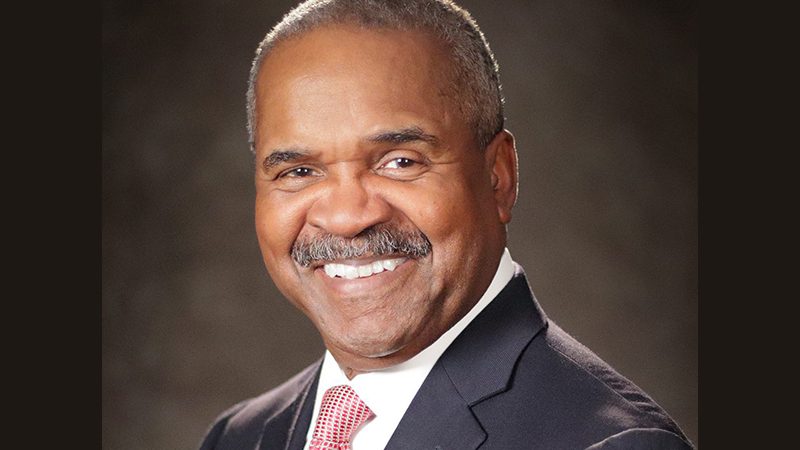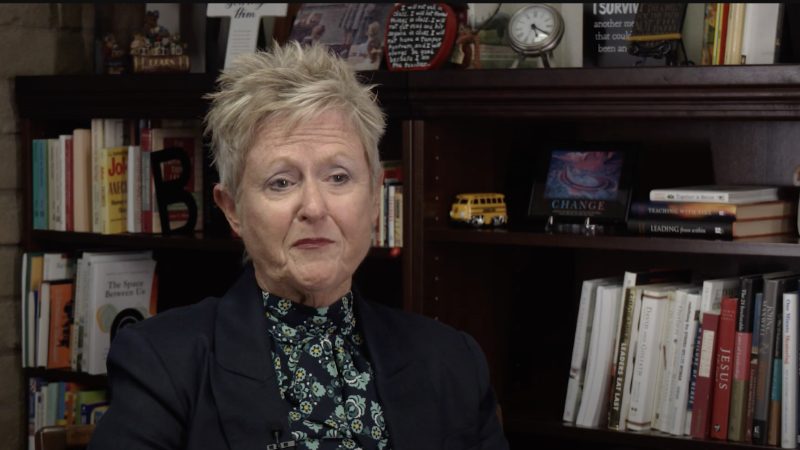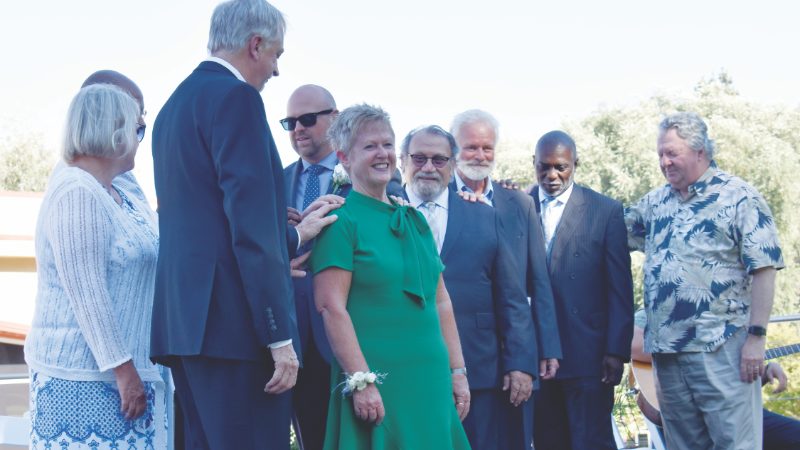"The defendant will please rise for the reading of the verdict.” This is the moment of highest drama in the criminal trial. Guilty or not guilty? All permitted evidence has been presented, witnesses examined, the prosecution and defense lawyers have given their closing statements, and the jury has concluded its private deliberations. The judge silently reviews the jury decision papers and then hands them off to the court clerk who will read the results. But even before the verdict is read, there are 12 people who already know the decision. The members of the jury. One of those jurors was me.
My nine days of sitting in the courtroom during this criminal trial reminded me again that television legal dramas and the real thing are different in many ways. Most important to me were the jury instructions given by the judge. The defendant is innocent throughout the trial and does not need to prove otherwise. The jury instructions for California place the entire burden upon the prosecution to prove guilt “beyond a reasonable doubt,” which “leaves you with an abiding conviction that the charge is true.”
As I pondered the events of this recent criminal trial—the witnesses, the physical evidence (including DNA test results), the lawyers, and the judge—it struck me that this world is seeing, listening, and experiencing another type of trial today. We are living through a planetary-scale trial where two opposing forces call upon humanity to examine evidence and reach a verdict about God Himself and their future with Him. The contest has gone on for generations, and Seventh-day Adventists believe that evidence shows a nearing culmination.
“And you will hear of wars and rumors of wars. See that you are not troubled; for all these things must come to pass, but the end is not yet. For nation will rise again nation, and kingdom against kingdom. And there will be famines, pestilences, and earthquakes in various places. All these are the beginning of sorrows” (Matthew 24:6-8, NKJV).
Are the words of Jesus true? What does the evidence tell us? See the horrific prevalence, rapidity, and scale of human violence. Listen to the daily suffering from millions from hunger and disease while others enjoy abundance and safety. Evaluate the large-scale extinction of species along with the unprecedented environmental degradation of our planet into a less habitable place. These data points are witnesses to the ongoing slide of humanity and our planet toward disaster. The flow of history does not lead to a greater utopian global society or life on an orbiting craft above an alien planet. I conclude beyond a reasonable doubt that we are stuck right here—and things are not going well nor are they going to improve.
In our planetary trial, what do the two sides offer for the future? We hear from Jesus again: “The thief does not come except to steal, and to kill, and to destroy. I have come that they may have life, and that they may have it more abundantly” (John 10:10, NKJV). Here are two contrasting paths of life that have distinct inevitable and ultimate conclusions. What does the evidence tell us? The enemy thief will take away the best we have while enticing us toward the vain pursuit of riches, pleasure, fame, and physical perfection. In the end we are reminded that, “Man is like a breath; His days are like a passing shadow” (Psalm 144:4, NKJV). In stark contrast is our Friend Jesus. He offers a different path of meaning to life, purpose for each day, and an eternal home with Him. Psalm 16:11 assures us that “You will show me the path of life; In Your presence is fullness of joy; At your right hand are pleasures forevermore” (NKJV). I conclude from the testimony of millions as well as my own life experience that beyond a reasonable doubt our God indeed offers to us the abundant life in Christ.
To know that there is a Savior Jesus who paid the price for my sins—past, present, and future—makes me glad I’m a Seventh-day Adventist.
Someone asked me recently, “Are you glad you are a Seventh-day Adventist?” Without a pause I replied, “Yes.” The obvious follow-up question is “Why?” What is the evidence for my answer? Every one of us must consider this for themselves, so I can only speak for my own life experience. To know that there is a Savior Jesus who paid the price for my sins—past, present, and future—makes me glad I’m a Seventh-day Adventist. To look at the world around me with its marred yet persistent beauty, I know that there is a Creator who made both the earth and me. He gave me the seventh-day Sabbath to rest and think of Him. This same Creator Father has a plan for my life each day, and when I place myself in His hands, I can trust Him even when I don’t understand everything in each moment. I’m glad that I’m a Seventh-day Adventist because I know that this earthly toil is not the end of the story. Those I love and miss are sleeping in the Lord until that glorious day when they are awakened by His voice and I will see them again. Jesus will also remember every part of me down to the very DNA of my cells when He returns to awaken me from the dust. I’m so grateful to be a Seventh-day Adventist because I embrace a view of this life that cradles my past, present, and future with hope. The evidence I offer is that it’s not just a set of doctrines but a way to live my life with purpose and meaning.

With over 20 million other Seventh-day Adventists, I conclude beyond a reasonable doubt that we have something wonderful to share with a hurting world. The most important thing we must share is that Jesus is coming back to this world again. Like it says in a song I love to listen to every day, “We know that He’s coming back!” Perhaps this is why Paul ends his letter to the Corinthians with an Aramaic word that is used only one time in the Bible. In 1 Corinthians 16:22 he says, “Maranatha!” (NASB). Translated it means, “Our Lord, come!” Let this remain on our lips each day of 2024 as we live faithfully, prayerfully, and in service to others in our Lord’s name.
_____________________________
Bradford C. Newton is the president of the Pacific Union Conference.
Maranata
Por Bradford C. Newton
«El acusado se pondrá de pie para la lectura del veredicto». Ese es el momento de mayor dramatismo en el juicio penal. ¿Culpable o no culpable? Se han presentado todas las pruebas permitidas, se ha interrogado a los testigos, los abogados de la fiscalía y de la defensa han presentado sus alegatos finales y el jurado ha concluido sus deliberaciones privadas. El juez revisa en silencio los documentos de la decisión del jurado y se los entrega después al secretario de la corte, quien leerá los resultados. Pero incluso antes de que se lea el veredicto hay 12 personas que ya conocen la decisión. Los miembros del jurado. Uno de esos miembros del jurado era yo.
Mis nueve días sentados en la sala del tribunal durante ese juicio penal me recordaron una vez más que los dramas legales televisivos y los reales son diferentes en muchos sentidos. Lo más importante para mí fueron las instrucciones dadas por el juez al jurado. El acusado es inocente durante todo el juicio y no necesita probar lo contrario. Las instrucciones a los jurados, en California, colocan toda la carga sobre la fiscalía para probar la culpabilidad «más allá de toda duda razonable», lo cual «lo deja con una convicción duradera de que el cargo es cierto».
Al reflexionar sobre los acontecimientos de ese reciente juicio —los testigos, las pruebas físicas (incluyendo los resultados de las pruebas de ADN), los abogados y el juez— me di cuenta de que este mundo está viendo, escuchando y experimentando otro tipo de juicio hoy en día. Estamos viviendo un juicio a escala planetaria en el que dos fuerzas opuestas llaman a la humanidad a examinar la evidencia y llegar a un veredicto sobre Dios mismo y su futuro con él. La contienda ha continuado durante generaciones y los adventistas del séptimo día creen que la evidencia muestra una culminación cercana.
«Oirán de guerras y de rumores de guerras. Miren que no los turben, porque es necesario que esto acontezca; pero todavía no es el fin. Porque se levantará nación contra nación y reino contra reino. Habrá hambre y terremotos por todas partes. Pues todas estas cosas son principio de dolores» (Mateo 24:6-8).
¿Son verdaderas las palabras de Jesús? ¿Qué nos dice la evidencia? Consideremos la horrible prevalencia, rapidez y escala de la violencia humana. Escuchemos del sufrimiento diario de millones de personas a causa del hambre y la enfermedad, mientras que otros disfrutan de abundancia y seguridad. Evaluemos la extinción a gran escala de especies junto con la degradación ambiental sin precedentes de nuestro planeta en un lugar menos habitable. Esos datos son testigos del continuo deslizamiento de la humanidad y nuestro planeta hacia el desastre. El flujo de la historia no conduce a una sociedad global utópica mejor o a vida en una nave en órbita sobre un planeta alienígena. Concluyo, más allá de toda duda razonable, que estamos atascados aquí y que las cosas no van bien ni van a mejorar.
En nuestra prueba planetaria, ¿qué ofrecen las dos partes para el futuro? Escuchamos de nuevo a Jesús: «El ladrón no viene sino para robar, matar y destruir. Yo he venido para que tengan vida, y para que la tengan en abundancia» (Juan 10:10). Aquí hay dos caminos contrastantes en la vida que tienen conclusiones distintas, inevitables y culminantes. ¿Qué nos dice la evidencia? El ladrón enemigo nos quitará lo mejor que tenemos mientras nos atrae hacia la vana búsqueda de riquezas, placer, fama y perfección física. Al final se nos recuerda que: «El hombre es como un aliento; sus días son como sombra pasajera» (Salmo 144:4). En marcado contraste está nuestro Amigo, Jesús. Él ofrece un camino diferente de significado para la vida, un propósito para cada día y un hogar eterno con él. El Salmo 16:11 nos asegura que «tú me mostrarás la senda de la vida; en tu presencia hay plenitud de gozo; a tu diestra hay placeres para siempre». Concluyo, por el testimonio de millones de personas, así como de mi propia experiencia de vida, que más allá de toda duda razonable, nuestro Dios nos ofrece vida abundante en Cristo.
Saber que hay un Salvador Jesús que pagó el precio por mis pecados, pasados, presentes y futuros, me alegra de ser adventista del séptimo día.
Alguien me preguntó recientemente: «¿Está contento de ser adventista del séptimo día?» Sin una pausa respondí: «Por supuesto». La siguiente pregunta obvia de es «¿Por qué?» ¿Cuál es la evidencia de mi respuesta? Cada uno de nosotros debe considerar esto por sí mismo, así que solo puedo hablar por mi experiencia. Saber que hay un Salvador Jesús que pagó el precio por mis pecados, pasados, presentes y futuros, me alegra de ser adventista del séptimo día. Al mirar el mundo que me rodea con su belleza estropeada pero persistente, sé que hay un Creador que hizo tanto a la tierra como a mí. Me dio el séptimo día, el sábado, para que descansara y pensara en él. Ese mismo Padre Creador tiene un plan para mi vida cada día y cuando me pongo en sus manos, puedo confiar en él incluso cuando no entiendo todo en cada momento. Me alegro de ser adventista del séptimo día porque sé que este trabajo terrenal no es el final de la historia. Aquellos a los que amo y extraño están durmiendo en el Señor hasta ese glorioso día en que sean despertados por su voz y los volveré a ver. Jesús también recordará cada parte de mí, hasta el ADN mismo de mis células, cuando regrese para despertarme del polvo. Estoy muy agradecido de ser adventista del séptimo día porque abrazo una visión de esta vida que abarca mi pasado, presente y futuro con esperanza. La evidencia que ofrezco es que no es solo un conjunto de doctrinas, sino una forma de vivir con propósito y sentido.

Con más de 20 millones de adventistas del séptimo día, concluyo más allá de toda duda razonable que tenemos algo maravilloso que compartir con un mundo herido. Lo más importante que debemos compartir es que Jesús regresará a este mundo otra vez. Como dice un canto que me encanta escuchar todos los días: «¡Sabemos que él va a volver!» Tal vez por eso Pablo termina su carta a los Corintios con una palabra aramea que se usa solo una vez en la Biblia. En 1 Corintios 16:22 dice: «¡Maranata!» que traducido significa: «¡Señor, ven!» Que eso permanezca en nuestros labios cada día de 2024 mientras vivimos fielmente, en oración y en servicio a los demás en el nombre de nuestro Señor.
_____________________________
Bradford C. Newton es el presidente de la Pacific Union Conference.






